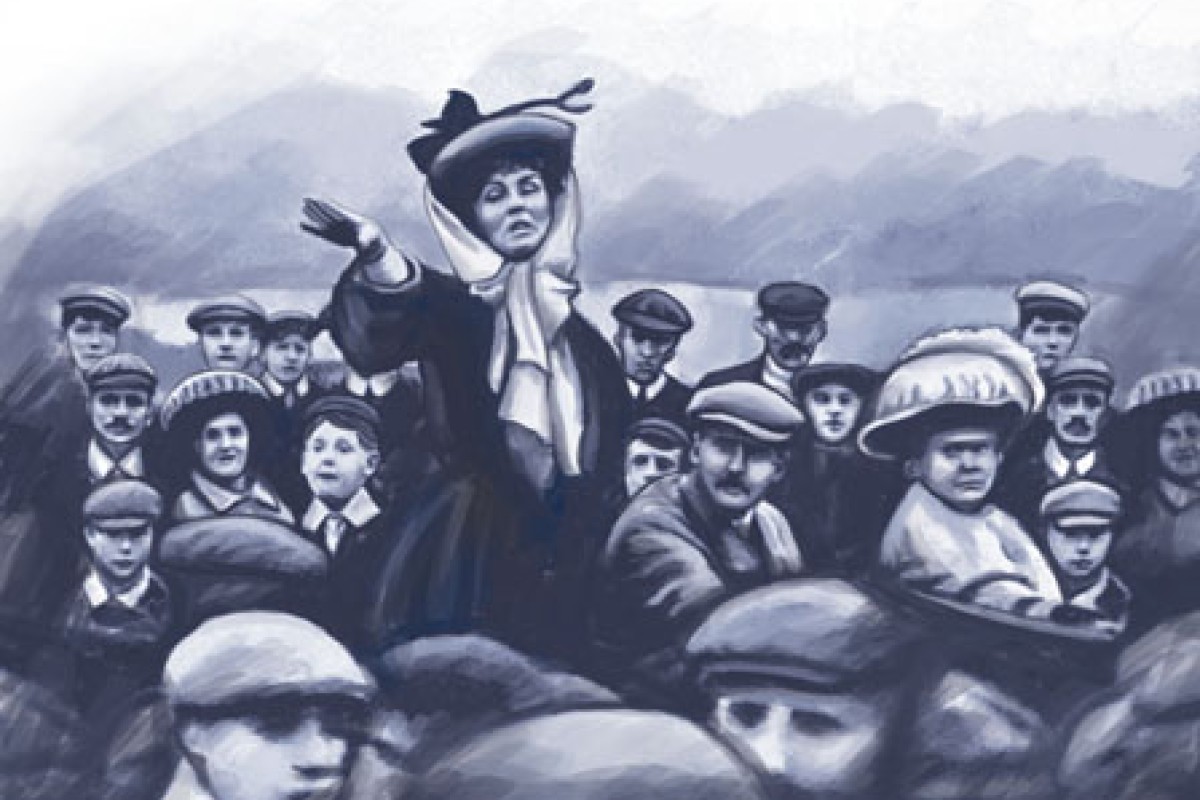
|
"We have to free half of the human race, the women, so that they can help to free the other half"
Little revolutionary
Find words that mean: promised, enthusiastic, an unmarried man, manners, defining moment
When he was young, Einstein had difficulty speaking. Some people thought this was because he wasn't clever. But he actually did very well in some subjects.
Emmeline Pankhurst was born Emmeline Goulden. Both her parents came from politically active families. Her father, Robert, ser ved on a local town council. Her mother, Sofia, was an avid supporter of suffrage - the right to vote - for women. Pankhurst said she became a supporter herself when she was just eight. But the turning point came when she attended a speech on women's rights when she was 14.
Even though her parents were politically active and believed women should be able to vote, they did not have strong opinions about women's education. They believed women should just learn practical things that would make them useful wives. Pankhurst attended a school in Manchester for some time. When she was 15, she went to a 'finishing school' in Paris, where she learned etiquette, and practical skills which would help her find a husband.
At the age of 20, Emmeline returned to Manchester and met a barrister called Richard Pankhurst. Although he was 24 years older than her and had vowed to remain a bachelor so that he could fight for political rights, the two married and had five children. The couple hired a servant to help look after the children so that Emmeline Pankhurst could be involved in political activities.
The political fray
Find words that mean the opposite: oblivious, conservative, agreements, peaceful, forbidden from
In the 1880s, the family moved to London. Pankhurst started to get involved in the suf fragette movement. There were many disputes within the movement at the time. For example, some advocates believed that married women did not need to vote because their husbands could vote for them. Pankhurst did not agree with this. She believed all women should be allowed to vote. So she and her husband formed their own organisation called the Women's Franchise League.
Unfortunately, the WFL was considered too radical by many people. After four years, it lost a lot of members and the league fell apart. Pankhurst began to work with the newly formed Independent Labour Party, mostly helping supply food to the ver y poor. She would eventually break with the party because she did not think it was doing enough to push for women's suffrage.
Taking it to the streets
Choose the right option
In June 1908, half a million people encouraged
hunger strikes writings persecuted ralliedin London's Hyde Park Hyde Park. Two women members of the WSPU threw rocks at the windows of the prime minister's house in Downing Street. They were sentenced to two months in jail. The following year, other women in jail began to use encouraged
hunger strikes writings persecuted ralliedto get attention. The authorities responded by force-feeding them.
These were hard years for Pankhurst. She had no home, and constantly travelled, staying with friends and in hotel rooms, her belongings in suitcases. She rarely had time to spend with her children. In 1909, her son Harry died. She continued to be encouraged
hunger strikes writings persecuted ralliedby the police and had to use disguises. She even had a squad of jujitsu-trained female body guards to protect her.
Despite this, Pankhurst continued to travel and work during the first world war. She went to the US and encouraged
hunger strikes writings persecuted ralliedthe country to support the war effort by Britain and its allies. She even went to Russia, where her encouraged
hunger strikes writings persecuted ralliedhad made her famous. With the end of the war in 1918, parliament finally gave women over 30 the vote. It was a move in the direction Pankhurst had struggled for all her life.
True or false?
To test your memory, try answering without referring to the text. If you can't remember the details, read the piece again.
1 Emmeline Pankhurst went to finishing school in Paris.
2 Pankhurst's husband was 14 years older than she was.
3 Pankhurst had five children.
4 Pankhurst joined the Labor Party shortly before dying.
<!--//--><![CDATA[// ><!-- PDRTJS_settings_2072252 = { "id" : "2072252", "unique_id" : "default", "title" : "", "permalink" : "" }; //--><!]]>
